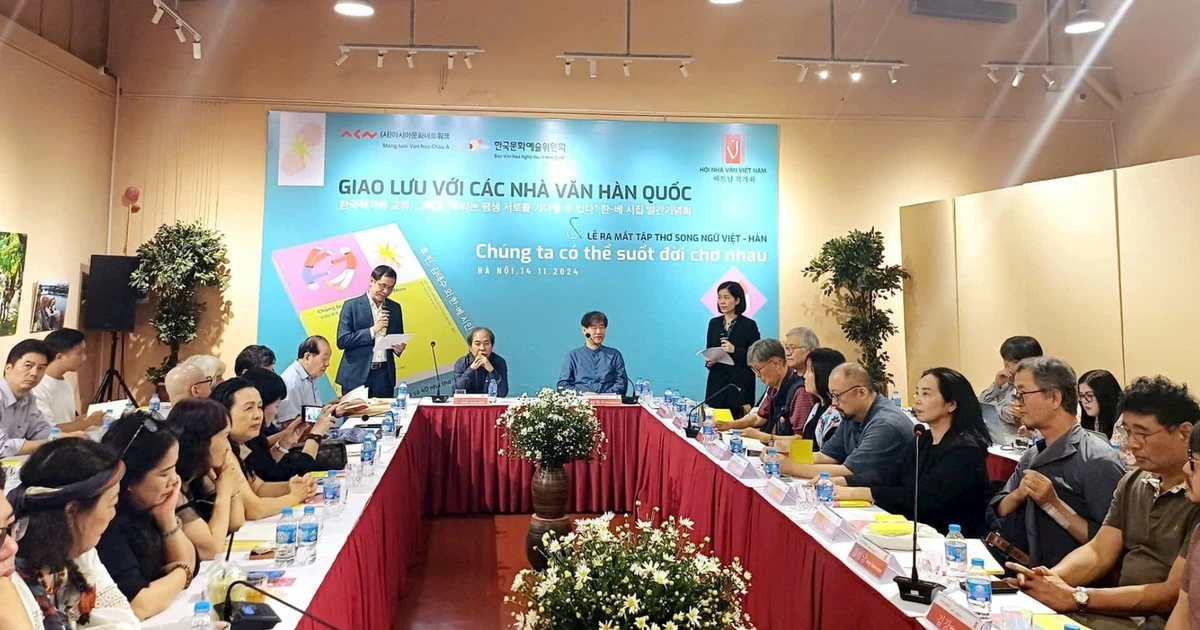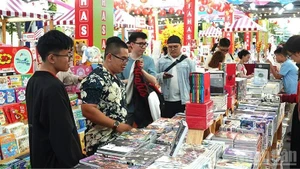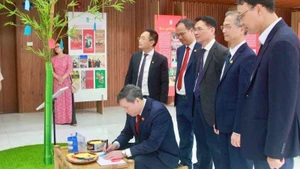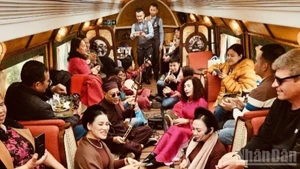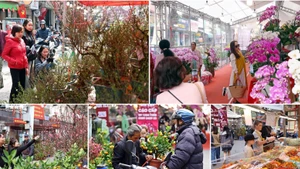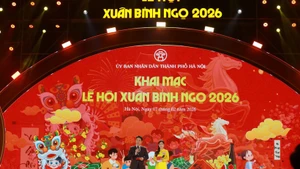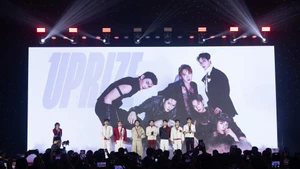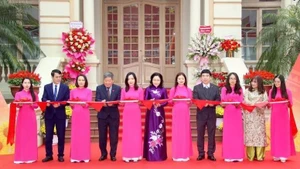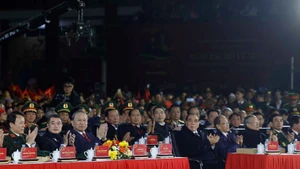Yet behind this lively scene lie important questions about the actual quality of works, as well as concerns that excessive reliance on media “hype” may undermine both the effectiveness and sustainability of promotion efforts.
In recent years, there have been encouraging signs in the promotion of Vietnamese literature. Large-scale events such as Viet Nam Book and Reading Culture Day, book fairs, conferences, seminars, and author–reader exchanges are gradually becoming an integral part of public life. The 2025 Viet Nam Book and Reading Culture Day, held in April, expanded nationwide with more than 300 activities across provinces, schools, and armed forces. These included both in-person and online book fairs, as well as diverse activities such as exhibitions of audiobooks and interactive books, and the use of AI and virtual reality applications to support book promotion. At the same time, many publishers have partnered with technology firms to develop advanced software that analyses reading behaviour, broadens accessibility, and enhances promotion.
Over the past two years, the Viet Nam Writers’ Association has continuously signed cooperation agreements with partners worldwide to translate acclaimed works; published numerous bilingual anthologies; proactively organised conferences, seminars, and forums; and collaborated in presenting regional and international literary awards. According to the Department of Publishing, Printing and Distribution (under the Ministry of Culture, Sports and Tourism), each year hundreds of publishers and distributors take part in copyright negotiations, cultural exchanges, trend updates in publishing, and, crucially, international promotion.
Equally notable is the role of a new generation of writers who actively use social media and digital platforms to share their works and interact with readers both domestically and abroad. This has created a dynamic, dialogic, and open literary space.
Despite these positive developments, many voices at conferences and forums continue to stress the lack of a long-term strategy, the shortage of professional teams, and the absence of coordinated efforts among organisations. As a result, literary promotion remains fragmented.
Despite these positive developments, many voices at conferences and forums continue to stress the lack of a long-term strategy, the shortage of professional teams, and the absence of coordinated efforts among organisations. As a result, literary promotion remains fragmented. Poet Nguyen Quang Thieu, Chairman of the Viet Nam Writers’ Association, said: “Literature plays a vital role in shaping cultural identity, building national image, and fostering human development. Therefore, if promotion is limited merely to introducing books, it is an outdated approach. True promotion requires new thinking, new systems, and new technologies that can deeply penetrate literary life and extend powerfully onto the international stage.”
Experts have also raised concerns about the imbalance between form and substance in current promotion efforts. Many works are heavily publicised but leave readers disappointed; some book launches rely on formulaic and superficial commentary such as “a moving work,” “profound style,” or “a meaningful and humanistic story,” without thorough, objective analysis. Moreover, much of domestic literary promotion still appears “seasonal”, lacking long-term strategies for authors, works, or literary movements.
The explosion of media and the pressure to be present in international markets have also pushed some individuals and publishers toward excessive promotion, placing form over substance—lavish publicity campaigns that lack depth or quality. Worryingly, under the banner of “internationalisation,” even works of questionable merit are sometimes translated and presented at overseas book fairs.
Lessons from countries such as the Republic of Korea and Japan show that promotion can only succeed when coupled with deep investment in the quality of works, systematic translation, and rigorous quality control before exporting literature abroad. Writers cannot bypass these steps with mere publicity if their works have not yet convincingly won over domestic readers.
To elevate literary promotion, a comprehensive and coordinated approach is required, especially developing professional author–work branding, creating an integrated ecosystem of media, education, and publishing, investing in promotional expertise, and leveraging digital technology and communication. Experts also affirm that, in the story of literary promotion, the writer remains the first and ultimate central figure.
“If in the past, once a work was completed, the writer would simply ‘leave it’ to the publisher, critics or the media, then in the digital era and with personal communication channels, they can themselves become the very first distributor. For this reason, writers must build a distinctive, consistent, and inspiring personal brand. The dynamism, diversity, courage and integrity of the writer not only contribute to creating fine works but also to enriching the vibrant journey of literature, helping them to win over readers both at home and abroad,” poet Nguyen Quang Thieu shared.
In response to the question: Many newspapers no longer publish literary works—does this affect promotion? Poet Tran Dang Khoa argued that this does not reduce writers’ interaction or their “space” for expression. Specifically, everyone now has their own “personal publishing house” in the form of social media. Authors can self-publish their works and, in effect, “step directly into the world”; many with foreign language skills even translate their own writings and publish them abroad. It could be said that never before has literary promotion been so convenient.
According to him, today’s literary scene boasts many talented writers who quietly rise through their achievements. When reaching out to the international stage, identity is important, yet what truly matters is how well one writes—quality will secure recognition. To write well requires talent, originality, and rigorous practice; promoting literature, however, is a long-term endeavour that demands investment, meticulousness, and sincerity.
Associate Professor Dr Nguyen The Ky, Vice Chairman of the Central Theoretical Council, emphasised that, alongside domestic efforts, it is equally important to harness the talent and dedication of overseas Vietnamese intellectuals and artists, enabling them to act as bridges in promoting the nation’s image, culture and people through literature. He stressed the need to establish several Vietnamese cultural and translation centres abroad, while also developing mechanisms and policies for cultural diplomacy to support the promotion and export of cultural and artistic products overseas.
Literary promotion is essential, but if it merely follows surface-level trends without paying attention to content quality, it risks losing its real value. The digital era requires all those engaged in literature—from writers and critics to publishers and administrators—to be more agile and courageous, so that literary promotion enhances understanding, appreciation, and active exploration and connection.
